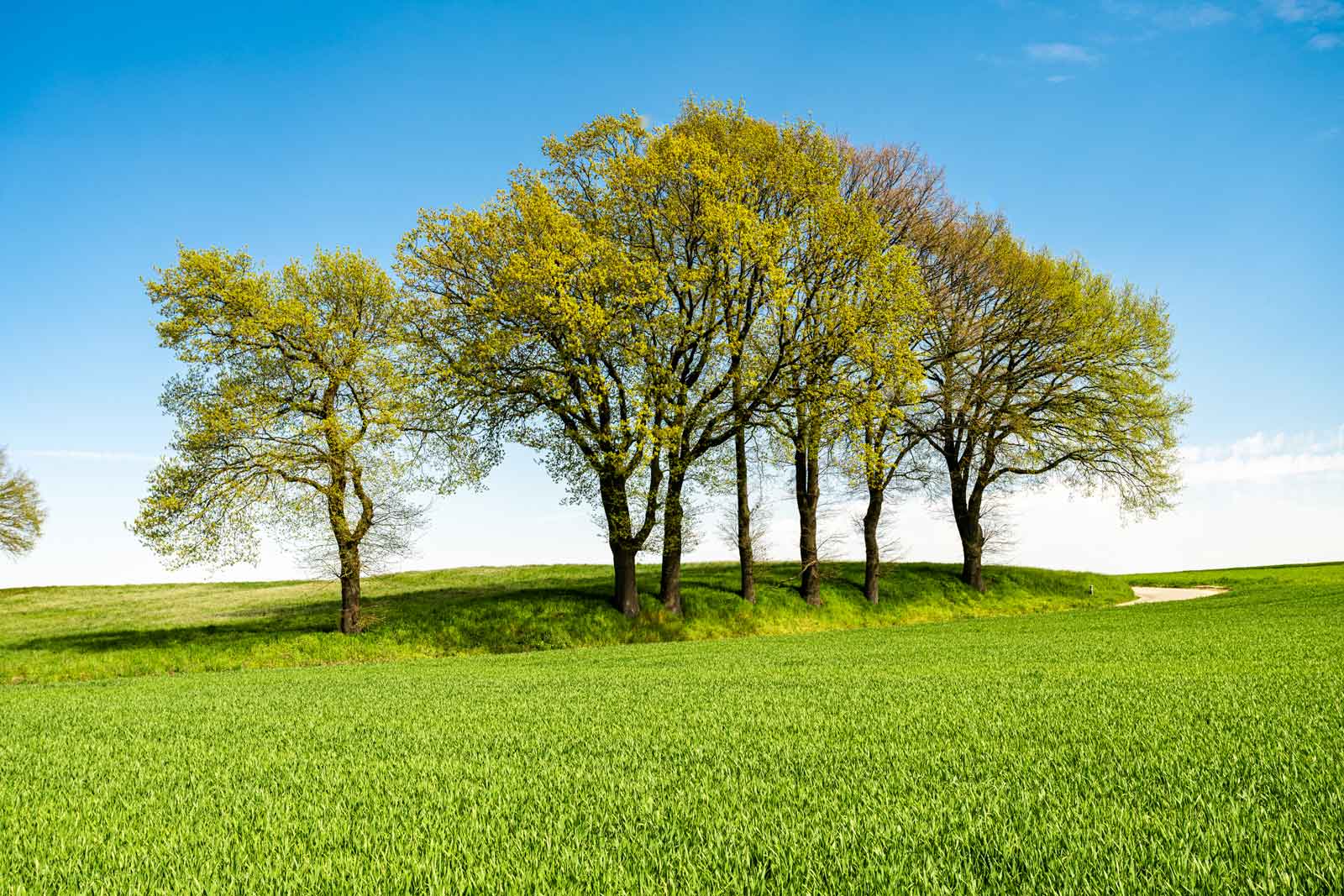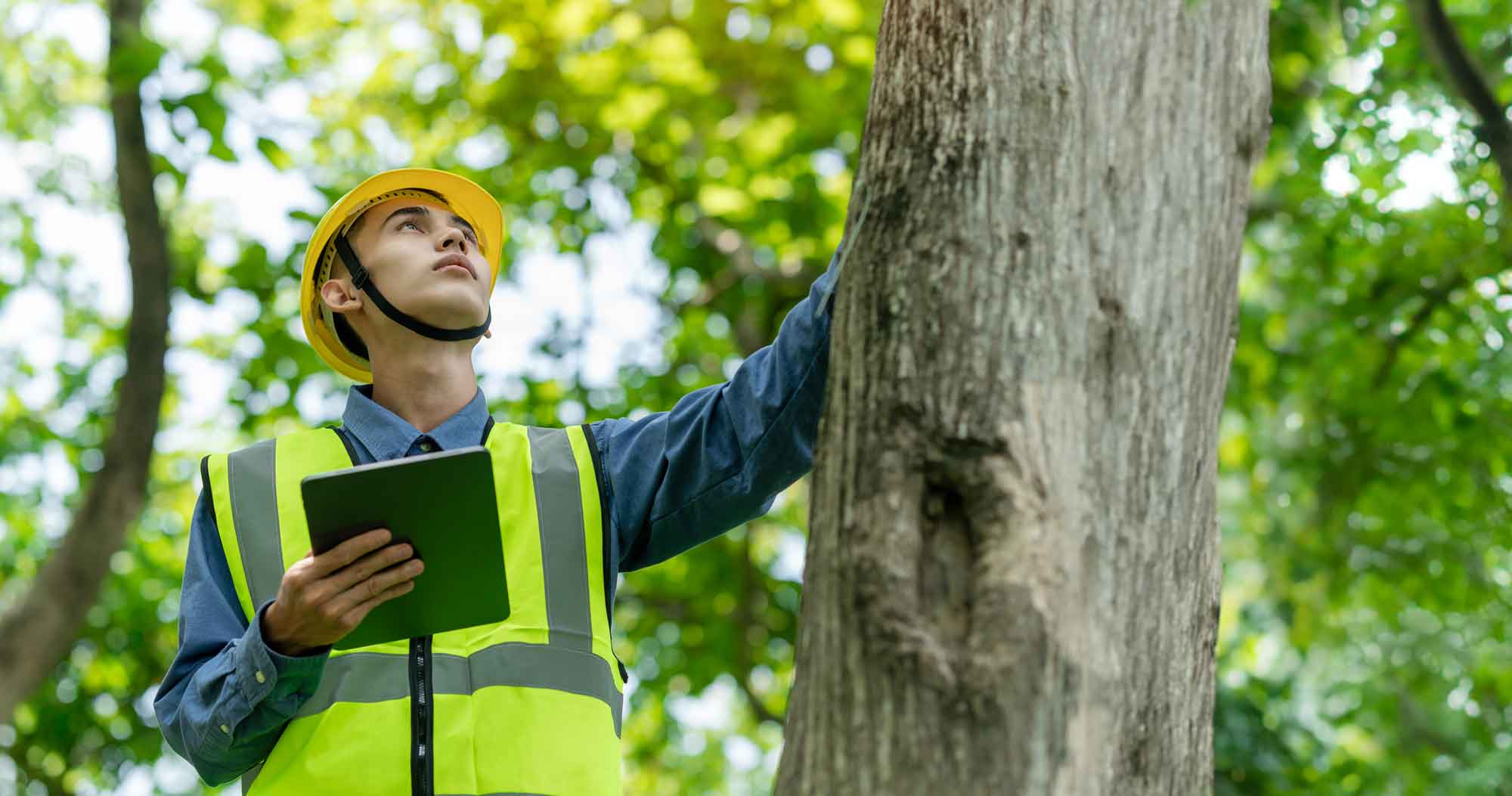Diseases can infect and kill even the strongest trees in Denver. It’s important to know what types of diseases can affect your trees, and how to spot and treat them effectively. Let’s look at some common diseases that affect trees in Denver, and what you can do to keep your trees healthy.
Anthracnose
Anthracnose is a fungus that affects ash, elm, maple and sycamore trees, among other deciduous trees and shrubs. Ideal conditions include rain and fog late into the winter and early spring, and it thrives in humid conditions. Anthracnose causes dark spots to appear on leaves and they’ll begin to curl. Fungicides can treat the disease, but it’s much easier to prevent the problem before it’s present. Anthracnose doesn’t typically kill a tree, but it causes unsightly damage and weakens the tree, which can leave it vulnerable to other diseases and infestations.
Canker
There are many different types of canker, including Cytospora Canker, Thyronectria Canker, and 1000 Canker Disease. They affect a number of different Denver trees, and they can be fatal without treatment. A canker is a dead area that’s located on the bark of a tree’s trunk or branches. If you spot symptoms of canker on one of your Denver trees, it’s important to apply treatment right away. In some cases, it can be pruned away, but without treatment, the tree will eventually die.
Dutch Elm Disease
Dutch Elm Disease is caused by a fungus that spreads to the bark of elm trees by bark elm beetles. This aggressive disease will infect a tree and can kill it within a year. In other cases, the disease may only infect one branch or a cluster of branches. Look for wilting and yellowing leaves that fall early from one branch or many. If diagnosed quickly, infected branches can be pruned, which allows the tree to remain healthy and strong.
Fire Blight
This bacterial disease affects apple, crabapple, pear, and quince trees. Symptoms can be spotted on the entire tree, from its blossoms and fruit to its limbs and trunk. Typically, the bacteria enters through a wound on the tree, creating cankered areas that look wet, green, or brown. There are many preventative measures that can be taken to prevent Fire Blight and at the first sign of infection. Trust your tree experts to diagnose and treat this disease quickly in order to keep your trees healthy.
Powdery Mildew
Powdery Mildew is a fungal disease that can infect the leaves of plants that produce apples, lilacs, and roses. The telltale white powder indicates that the plant has been infected and needs swift treatment. You also may notice white or black spore-like spots on the leaves. Powdery Mildew, if left untreated, will make it difficult for the tree to get the nutrients it needs, which will weaken the tree and make it more likely to become sick with other diseases or infestations. With quick treatment, Powdery Mildew can be cured.
How to Keep Your Denver Trees Healthy
Just like humans are susceptible to getting sick, trees can become sick with a variety of infections. The best way to keep your trees healthy is by ensuring that they’ve got the nutrients they need to thrive. Taking time to fertilize and prune your trees annually will ensure that they’re strong and healthy. Some trees also need preventative fungicidal treatments in order to ensure they’re protected from common diseases.
If you’d like to ensure that your Denver trees are healthy, strong, and able to weather any storm, contact us at American Arbor Care. We’ll help you determine the best plan of action for each tree, so it’s fully prepared for any pest or disease exposure that may occur.


